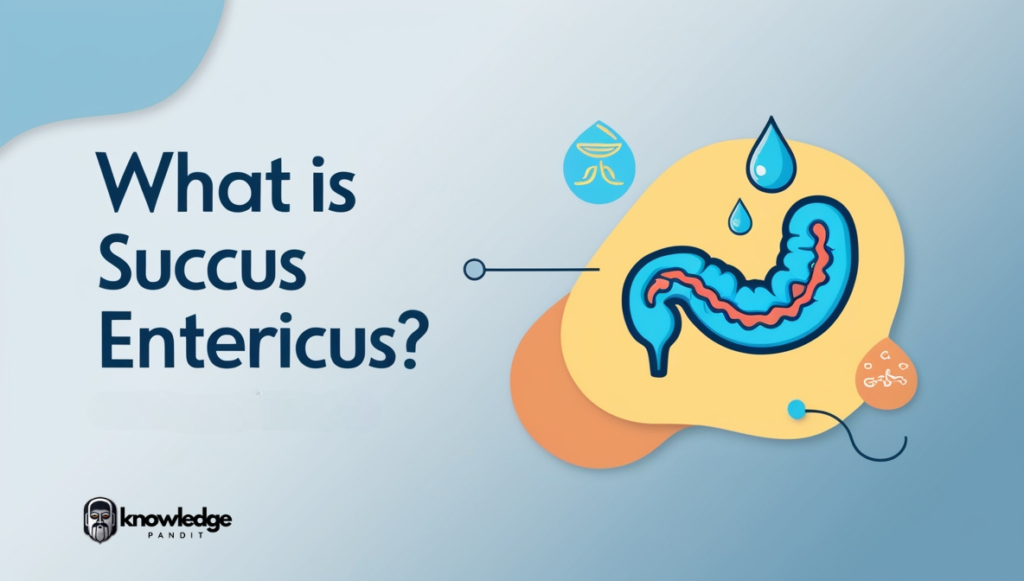Succus Entericus Definition
Succus entericus, also known as intestinal juice, is a digestive fluid secreted in the small intestine. It plays a crucial role in the digestive process by aiding the breakdown of food and protecting the intestinal lining from acidic contents entering the stomach.
Composition of Succus Entericus
Succus entericus is produced by the glands in the wall of the duodenum (the first part of the small intestine). It is an alkaline secretion composed of:
- Water
- Mucoproteins
- Carbonate hydrogen ions
These components work together to neutralize the acidic chyme (partially digested food mixed with stomach acid) and facilitate further digestion.
What is the Other Name of Succus Entericus?
Another name of Succus entericus is intestinal juice, which is an alkaline secretion produced by the crypts of Lieberkuhn in the walls of the duodenum. This essential fluid is composed of water, mucoproteins, and hydrogen-carbonate ions. It plays a crucial role in neutralizing the highly acidic and proteolytic chyme that enters the small intestine from the stomach, thereby protecting the duodenum from potential damage. By maintaining the pH balance, intestinal juice aids in creating a favorable environment for digestion and absorption in the small intestine.
How is Succus Entericus Produced?
Succus entericus is formed by:
- Mucosal Brush Border Cells: These cells line the small intestine and contribute to the production of digestive enzymes.
- Goblet Cells: These cells produce mucus, which lubricates the intestinal walls and prevents damage from acidic substances.
What are the Functions of Succus Entericus?
- Neutralizes Acidity
Succus entericus counteracts the acidic chyme that enters the small intestine from the stomach, protecting the duodenum from potential damage. - Aids Digestion
The intestinal juice provides an ideal environment for digestive enzymes to break down food particles effectively. - Supports Nutrient Absorption
By ensuring an optimal pH level, succus entericus facilitates the absorption of nutrients through the intestinal lining.
Why is the Importance of Succus Entericus?
- The acidic nature of chyme can harm the delicate walls of the small intestine.
- Succus entericus maintains an alkaline environment to neutralize acidity, enabling the smooth functioning of digestive enzymes like maltase, lactase, and sucrase.
- It ensures the continuity of digestion after the acidic phase in the stomach.





very informational